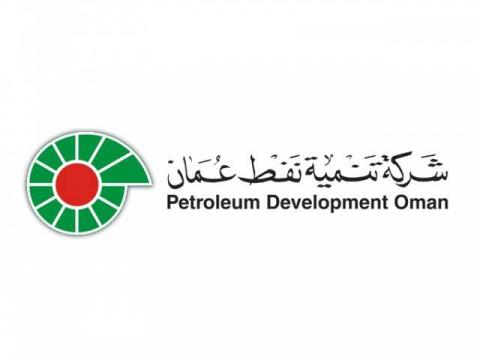Welcome to the March 2024 update from Thomas Murray’s Risk Committee, covering meetings in February. The Committee meets regularly to assess the health and stability of capital markets, custodian banks, transfer agents, fund platforms and market infrastructures around the world.
To find out more about the Committee's work, and to access the risk grades and scores, please contact us: enquiries@thomasmurray.com
Pakistan
It seems like a long time since Pakistan was not in the news, so there was plenty on the agenda when the Committee met at the end of February.
Shehbaz Sharif has been elected Prime Minister for a second term by the newly formed parliament, defeating a rival who was backed by imprisoned former Prime Minister Imran Khan. This decision follows a general election that took place three weeks ago, which was surrounded by accusations of voter intimidation and electoral fraud.
His first order of business will likely be to sit down with the International Monetary Fund (IMF) and negotiate a new loan to support Pakistan’s stumbling economy. Pakistan may ask for at least US$6bn to help it make good on the enormous debt payments it has due this year.
NCCPL’s T+1 settlement plans
The National Clearing Company of Pakistan Ltd (NCCPL) announced in January how it plans to transition to a shorter settlement cycle of T+1 from the current T+2 cycle.
NCCPL has identified key areas for discussion, including non-exchange transaction affirmation, leveraging market operating hours, and mark-to-market loss collection. NCCPL aims to begin a pilot run of the T+1 settlement cycle by 28 April 2024 – though the date could be pushed back to May or June.
New initiatives aim to keep Pakistan off FATF grey list
The Financial Action Task Force (FATF) removed Pakistan from its grey list at the end of 2022, and it’s hoped that the adoption of the National Anti-Money Laundering and Counter Financing of Terrorism Authority Act 2023 will keep Pakistan off the FATF grey list for good.
Economic and political instability remain obstacles, however, and work still needs to be done to stem the outflows of foreign investment since 2021.

Oman
In January, the Oman Investment Authority (OIA) officially inaugurated the Oman Future Fund, with capital of two billion Omani riyals (about US$5.2bn) earmarked for the five-year period from 2024 to 2028, with an annual allocation of 400 million riyals (around US$1.040bn).
Approximately 90% of the fund will go to direct investments in the economy, with the remaining 10% dedicated to supporting small and medium-sized enterprises (SMEs) and venture capital endeavours.
In general terms, the initiative has five objectives:
- to speed the nation's growth trajectory;
- to serve as a collaborative partner for both local and international investors seeking to broaden their footprint in Oman;
- to bolster the integration of the private sector:
- to provide crucial support for SMEs; and
- to invigorate Oman's venture investment landscape.
The Oman Future Fund will prioritise investments across various sectors – including information technology (IT); manufacturing, industry, the economic sector, green energy, mining, fisheries, agriculture, as well as ports and logistics services.
Even so, navigating Oman’s regulatory landscape poses significant challenges for foreign firms. To take only two examples, obtaining the visas and permits required for foreign workers is a process that can be most charitably described as slow and frustrating – particularly when it comes to work visas for women – and many international companies struggle to meet the mandated quotas for employing Omani nationals under the “Omanisation” policy.
Tanzania
Despite 2024 beginning with President Suluhu Hassan facing the first mass demonstrations since she took office in 2021, Tanzania remains relatively stable. The country recently inaugurated the first turbine of the Julius Nyerere Hydropower Plant, a project aimed at doubling the country’s power generation capacity and alleviating months-long power rationing.
The dam is controversial – it’s in one of the world’s largest World Heritage Sites – but it’s hoped it will drive forward Hassan’s reformist agenda.
Foreign investors currently receive treatment that’s broadly equivalent to domestic investors, though limits persist in a number of sectors.
There are:
- no geographical restrictions on private establishments with foreign participation or ownership;
- no limitations on the number of foreign entities that can operate in any given sector; and
- no sectors in which approval is required for greenfield foreign direct investment (FDI) but not for domestic investment.*
However, Tanzania discourages foreign investment in several sectors through limitations on foreign equity ownership or other activities. Notably, this includes banking and insurance, construction and heavy equipment, and information and communication technology.
In 2020, Tanzania relaxed but did not eliminate the foreign ownership limitations in the mining sector. Mining investors continue to complain about local banking requirements, which are real impediments to investment, though both domestic and foreign investors are subject to these regulations.
*A greenfield investment is a form of FDI where a parent company establishes a new subsidiary in a foreign country, starting its operations from scratch.
Uganda
Uganda faces a complex set of challenges that are hindering its growth trajectory. These include both structural and policy barriers.
One of the major threats to Uganda is the climate crisis. It suffers frequent droughts that the country has limited fiscal capacity to deal with. Because a large portion of the population relies on subsistence agriculture, this further hampers economic progress and harms productivity.
Access to affordable financing is a major hurdle for both domestic investors and the public sector in Uganda. The high local lending rates in Sub-Saharan Africa (SSA) restrict business growth and innovation. Additionally, the public sector's heavy reliance on market-based funding leads to elevated interest costs, diverting resources away from crucial development sectors like infrastructure.
The Bank of Uganda (BOU) has taken a proactive approach to monetary policy by adopting a medium-term strategy. The aim is to address threats to price stability and maintain inflation around the 5% mark. However, despite BOU’s efforts, lending interest rates remain high due to structural barriers such as the overall cost of doing business, market size, institutional gaps, and inherent risks. It is expected that the BOU will hold its policy rate at 9.5% at its next meeting in April, after agreeing to stay with 9.5% at its 6 February meeting.
In case you missed it
Uganda set to build world’s largest heated oil pipeline - The final negotiations are underway between Uganda and Alpha MBM Investments, a Dubai-based company, for the construction of a 1,400km heated oil pipeline. The pipeline, which will be the largest in the world, is part of a US$10bn global initiative. It is hoped the refinery will double Uganda’s GDP, and have a daily production capacity of 60,000 barrels.
Taiwan elects pro-independence president - Lai Ching-te, also known as William Lai, is the new president of Taiwan after January’s elections. The news will not have been welcomed in China, as Lai has described himself as a “pragmatic worker for Taiwan independence”. China has never ruled Taiwan, but nevertheless claims it as territory and has pointedly refused to rule out military action against it.
China sets modest GDP goals - Speaking of China, it has just announced its GDP growth target for the year at 5%. This fulfils widespread predictions of another year of modest economic ambitions. Premier Li Qiang addressed the challenges faced by China's leaders in his annual government work report, highlighting global economic conditions, regional tensions, and domestic issues like low consumer demand and a challenging labour market. Official data from January revealed a decline in the working-age population's contribution to the economy, dropping from 68% in 2013 to 61%.

Orbit Intelligence
Centralise your monitoring and reporting, access Thomas Murray risk assessments and third party data feeds.
We safeguard clients and their communities

Petroleum Development Oman Pension Fund
“Thomas Murray has been a very valuable partner in the selection process of our new custodian for Petroleum Development Oman Pension Fund.”

ATHEX
"Thomas Murray now plays a key role in helping us to detect and remediate issues in our security posture, and to quantify ATHEX's security performance to our directors and customers."

Northern Trust
“Thomas Murray provides Northern Trust with a range of RFP products, services and technology, delivering an efficient and cost-effective solution that frees our network managers up to focus on higher Value activities.”
Insights

Thomas Murray launches Cyber Risk practice with key strategic hire
Leading global risk intelligence firm Thomas Murray has announced the launch of its Cyber Risk advisory practice today with the key strategic…

Tabletop exercises: Where to start
Knowing how to deal with the fallout from a major cyber incident is just as important as knowing how to prepare for one. In cyber security…

Thomas Murray announces Malta agreement with Diligex
Thomas Murray, the global risk intelligence and cyber security firm, today announced a distribution agreement with Diligex. Diligex is a…


